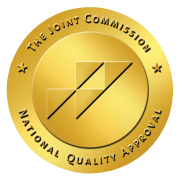The Types of Bipolar Disorder
What Is Bipolar Disorder?
Bipolar disorder is a mental health condition that is characterized by dramatic emotional swings. The swings can include—without warning—depression, anger, anxiety, paranoia, and bouts of mania that can last for weeks or months. This condition can interfere with interpersonal relationships and daily responsibilities.
An example of a bipolar experience could be when a person experiences a manic episode—they feel thrilled, energetic, and productive. They may have racing thoughts, might be easily distracted, and possibly engage in impulsive or risky behavior. They may also have difficulty sleeping and may chatter quickly.
This may be followed by a period of depression—very low, hopeless, and exhausted. They may have difficulty concentrating, changes in appetite and sleep patterns, and thoughts of death or suicide.
Types of Bipolar Disorder
Bipolar disorder is likely to last a lifetime. At worst, symptoms of bipolar disorder can bring on suicidal thoughts, self-harm, unwanted thoughts, and a loss of touch with reality that can lead to suicide. While the high-and-low episodes can cause havoc in a person’s life, there are often recognizable bipolar disorder triggers that can be managed.
However, bipolar disorder is a treatable condition. There are several effective options available. Treatment for bipolar disorder typically involves a combination of medication and therapy.
There are several types of bipolar disorder, but 4 main ones including bipolar I disorder, bipolar II disorder, and cyclothymic disorder.
Bipolar I
Bipolar I is the most common and often surfaces in teens and young adults, with most developing the disorder before the age of 50. Those with bipolar one have experienced at least one emotionally elevated manic episode that can induce psychosis, followed by one low depressive episode.
Bipolar II
Bipolar II involves at least one depressive episode and one hypomanic episode, a milder version that lasts a few days instead of weeks. Those with bipolar II usually never experience a manic episode.
Cyclothymic Disorder
Cyclothymic disorder is rare and an outlier from Bipolar I and II. It is considered a category, as hypomanic and depressive episodes are less stringent than those of major depression and bipolar disorder. In adults, it involves at least two years of several hypomanic and less severe depressive symptoms and at least one year in teens. Symptoms can be chronic, vary throughout a person’s lifetime, and may increase aggression.
Unspecified Bipolar Disorder
Unspecified bipolar disorder is most akin to cyclothymic disorder but does not meet the criteria of the previous types enough to be official. Those who suspect it reports having experienced bipolar symptoms at some point in their lives. Yet, unspecified bipolar symptoms parallel the others and tend to follow less of a pattern.
Getting Help for All Types of Bipolar Disorder in Newport Beach
Outpatient treatment for bipolar disorder, available at Lido Wellness Center, typically involves attending therapy sessions and taking medication as prescribed by a healthcare provider. Outpatient treatment can provide support and structure for people with bipolar and can help them manage their symptoms and improve their overall mental health.
Outpatient mental health treatment can include a variety of therapies, such as cognitive behavioral therapy (CBT), which can help people with bipolar disorder to better understand and manage their symptoms. Therapy can also provide a supportive environment in which people with bipolar disorder can work through any challenges they may be facing and develop coping strategies.
In addition to therapy, medication can also be an important part of treatment for bipolar disorder. Mood stabilizers and antipsychotics are commonly prescribed to help control the extreme mood swings and other symptoms of bipolar disorder. These medications can help to prevent manic and depressive episodes and can make them less severe when they do occur.
Overall, outpatient mental health treatment can be an effective way to manage bipolar disorder. Call our experienced team at Lido Wellness Center in Newport Beach to determine the best treatment plan for your individual needs.




